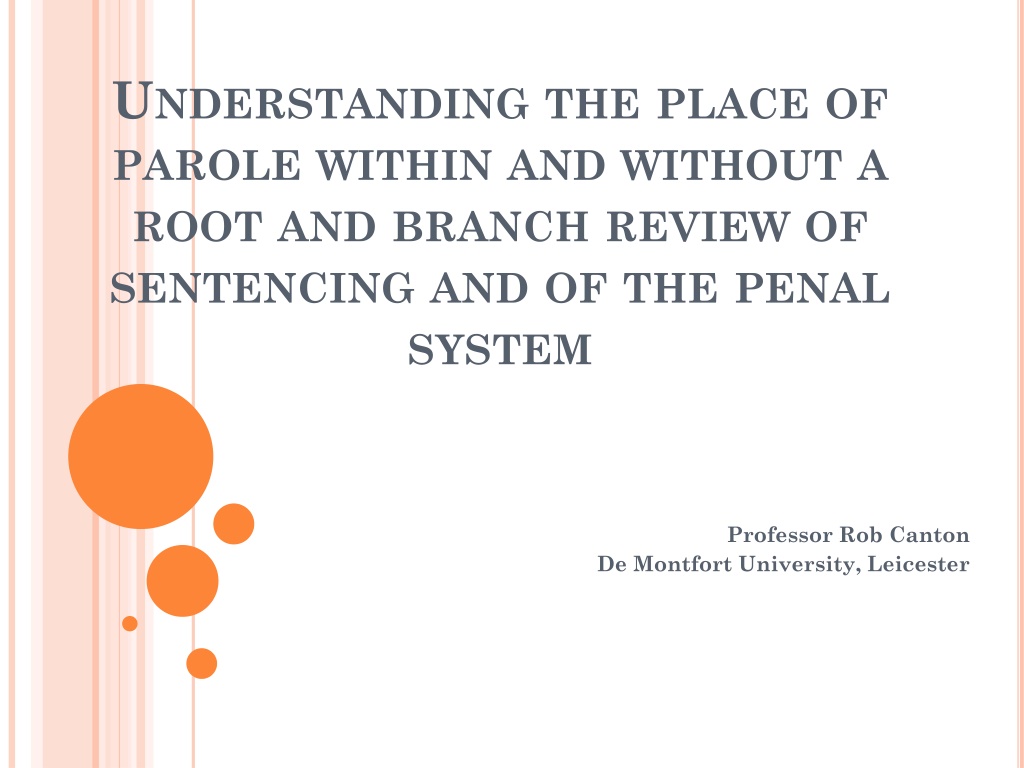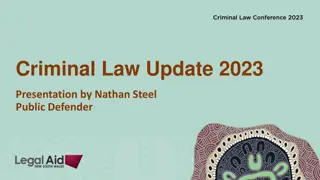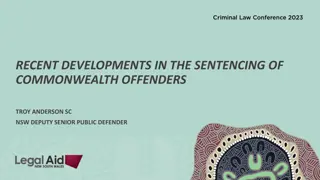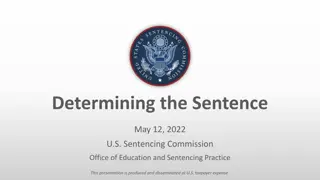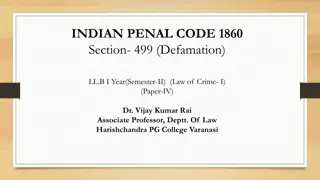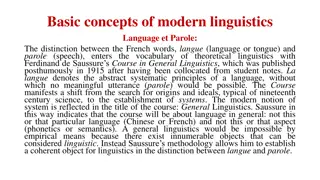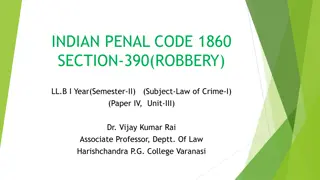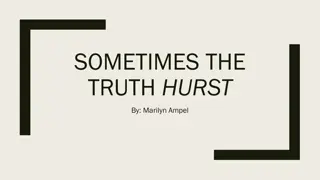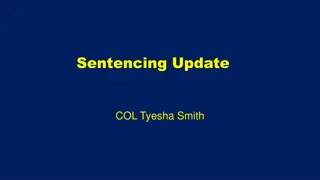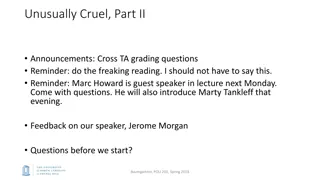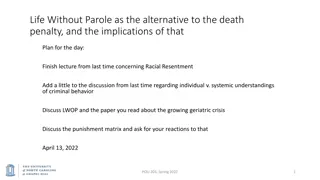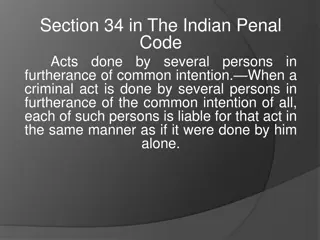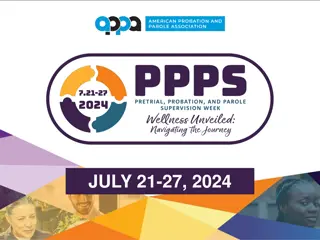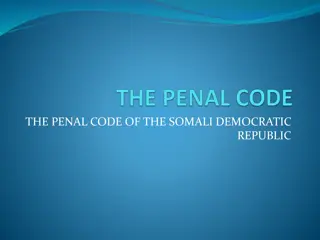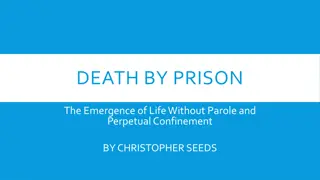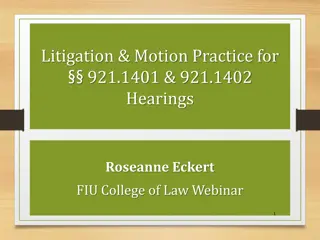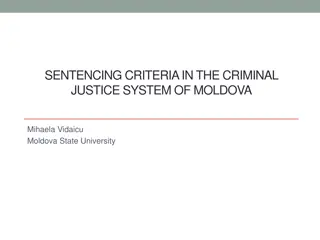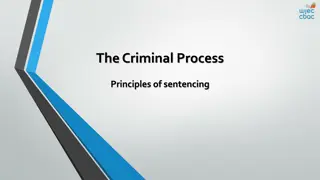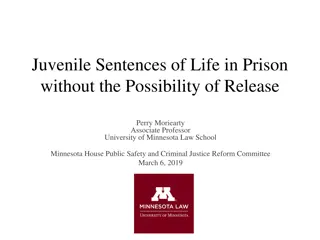Understanding the Place of Parole: A Review of Sentencing and the Penal System
Exploring the role of parole within the context of sentencing and the penal system, this review delves into themes of justice, risk assessment, rehabilitation programs, victim involvement, offender perspectives, public perceptions, and challenges faced by community supervisors. The discussion touches on the complexities of parole decisions, the impact on various stakeholders, and the intricacies of managing offenders upon release.
Download Presentation

Please find below an Image/Link to download the presentation.
The content on the website is provided AS IS for your information and personal use only. It may not be sold, licensed, or shared on other websites without obtaining consent from the author. Download presentation by click this link. If you encounter any issues during the download, it is possible that the publisher has removed the file from their server.
E N D
Presentation Transcript
UNDERSTANDING THE PLACE OF PAROLE WITHIN AND WITHOUT A ROOT AND BRANCH REVIEW OF SENTENCING AND OF THE PENAL SYSTEM Professor Rob Canton De Montfort University, Leicester
THE BOARD As a matter of justice, presumption should shift authorities should have to show why someone ought not to be released at tariff. How is someone to demonstrate reduced risk, especially when in prison? Is there too much emphasis on participation in programmes, presumably as a proxy measure for rehabilitation?
VICTIMS Rarely in a position to comment on risk They are often not those most at risk personally Their increased involvement pushes towards re- sentencing Boundaries of their role may be difficult (for them and others) to hold in the face of their anxieties and distress May believe that their involvement is tokenistic or be even further victimised by feeling not heard
OFFENDERS Sense of injustice e.g. served the term; release thought to depend on access to programmes that aren t available Uncertain about criteria for release, adding to the tightness of imprisonment (Crewe) - feelings of tension and anxiety generated by uncertainty Leading to cynicism about process? Attending programmes for the wrong reasons Wary of supervisors and maybe reluctant to disclose problems Frustrated, disaffected, confused by recall
PUBLIC Do they still understand this as early release ? Or at any rate as releasing people who do not belong among us Only hear of notorious cases (reviving memories of dreadful crimes) and of serious offences on licence Compassionate solidarity with victims
COMMUNITY SUPERVISORS Continuing prison, only now in the community in tension with risk management? The more demands and the more assiduously they are supervised, the greater the scope for non-compliance Does non-compliance = increased risk? (Parsons) Need to understand compliance and non- compliance better Preoccupation with period of licence period Experienced as the tripwire (Western)
SALIENCE OF EMOTIONS IN CRIMINAL JUSTICE (IAN LOADER) Cognitive deficit model: evidence, reason, argument limited potential (not none at all, though) Insulation model leave it to the experts used to be the Parole Board way, but no longer possible even if it were desirable Redirection model Acknowledging the emotional and exposing it to public scrutiny and debate Participation Personalisation / stories / not reducing people to the worst they ve ever done or to carriers of risk factors
CONFIDENCE OR LEGITIMACY? Public knowledge vs. public attitudes related but distinct Myth-busting addresses knowledge and merits even more attempts Some attempts to enhance legitimacy with victims, offenders, the public - have had limited (or even the opposite) effect Being safe vs. feeling safe But what if the principal emotion is not fear but something closer to (say) disgust Reassurance about reduced risk might miss the point
SOLUTIONS Formally include reintegration alongside risk into the remit of the Board (McNeill, Schinkel, Graham) Reintegration reminds us of the duties owed to people leaving prison, especially when so many of their problems aggravated by prison itself We can t insist on change then refuse to accept that people are attempting just that Shift presumption of proof Learn from past attempts criminal justice policy often confounded by failure to understand influence of the emotional
